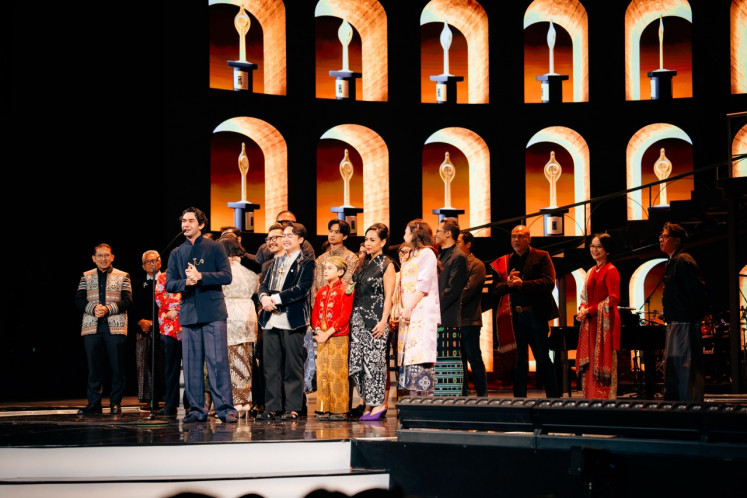Popular Reads
Top Results
Can't find what you're looking for?
View all search resultsPopular Reads
Top Results
Can't find what you're looking for?
View all search resultsKartini, beyond her famous letters
Change text size
Gift Premium Articles
to Anyone
R
aden Ajeng Kartini, popularly known as Kartini, is one of Indonesia's heroines. Born in Jepara, Central Java, on April 21, 1879, she is known as the icon of female emancipation. Indonesian director Hanung Bramantyo brought Kartini to life in the latest biopic Kartini, which will be screened in theaters on April 19.
Set on Java in the early 1900s, the movie starts with the young Kartini doing a laku dodok, a Javanese tradition in which a person moves forward in a squatting position as a sign of respect for elders. After that, her father asks her whether she is ready to be "Raden Ayu" (a Javanese title of nobility for married women).
In ancient Javanese tradition, when a girl reaches 12 years old, she must follow the pingitan rule of being kept inside a house until she's married. Compared to her stepsister Soelastri, who obediently submits to the tradition, Kartini does not like to follow pingitan as she craves freedom.
Her life completely changed when her older brother Raden Mas Panji Sosrokartono gives her a key to his cupboard where he keeps all of his books. Kartini developed a love for books with a special interest in the issue of female emancipation. Her newfound love of reading spreads to her younger sisters Roekmini and Kardinah, who were also entering the pingitan period.
‘Kartini’ mengeksplorasi usaha sosok Kartini untuk mencapai hak kesetaraan wanita, yang dimulai dari dirinya sendiri. pic.twitter.com/ZTSJA9MD9p
— #FILMKARTINI (@LegacyPictures) April 4, 2017
Read also: Hanung Bramantyo dedicates ‘Kartini’ movie to men
Kartini also began to write and had an article published in De Hollandsche Lelie magazine, although it was under her father’s name Raden Sosroningrat, a Jepara regent. Her eagerness to break with tradition faced many objections from people around her, which included her older brother Slamet Sosroningrat, her stepmother Moerjam and her father’s colleagues.
Hanung portrays Kartini as a sociable person in this film by showing Kartini's interactions with the writers of the books she reads and with friends with whom she corresponds. Actors Dian Sastrowardoyo (Kartini) and Christine Hakim (Ngasirah) brilliantly collaborated in a genuine mother-daughter chemistry. Hanung also shines a light on Kartini's vulnerability in which she is still influenced by men around her, such as the brother who introduces her to his books and her father.
Kartini stars Dian Sastrowardoyo, Christine Hakim, Acha Septriasa, Ayushita, Djenar Maesa Ayu, Reza Rahadian, Denny Sumargo, Deddy Sutomo, Adinia Wirasti and Dwi Sasono. (asw)










